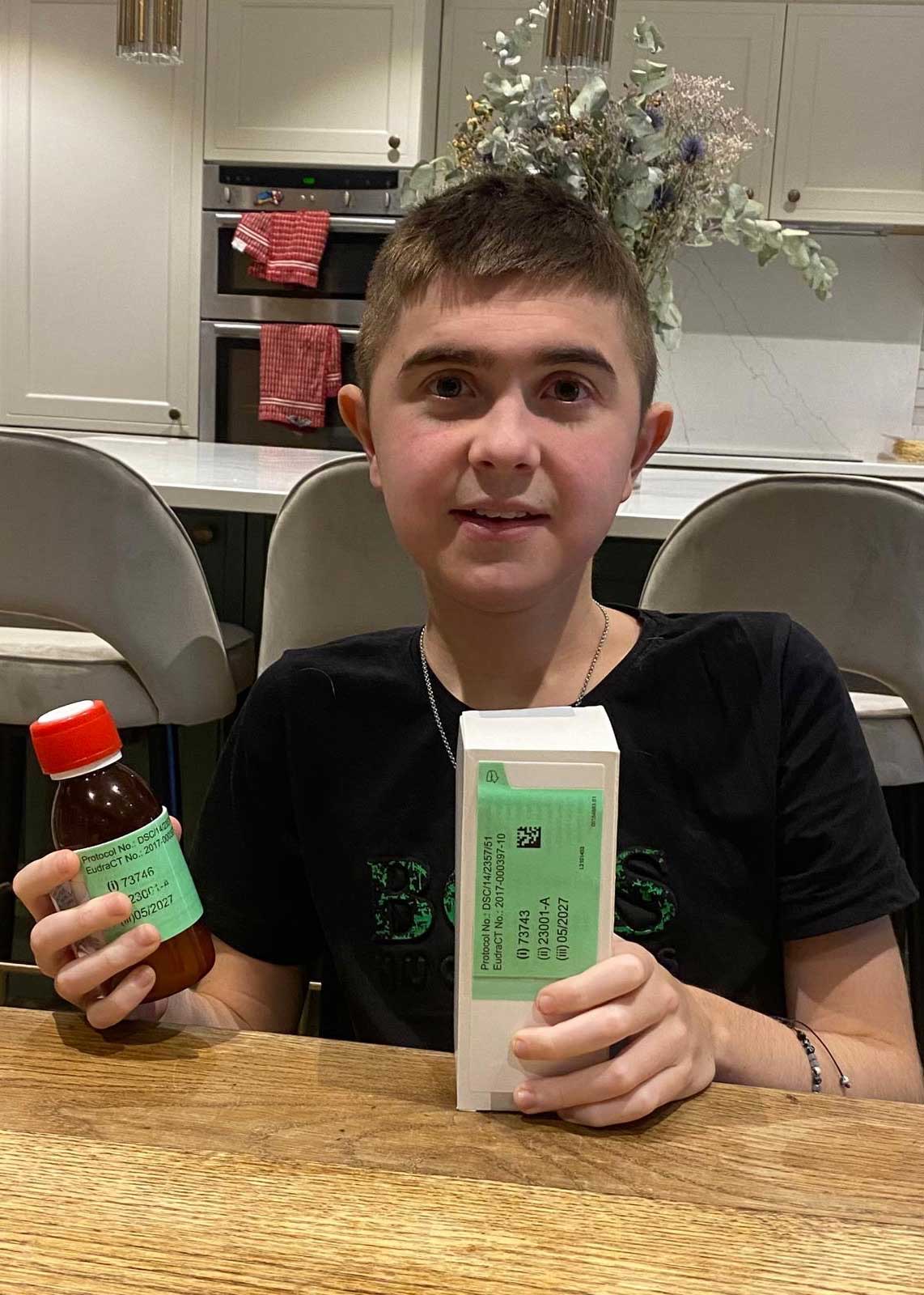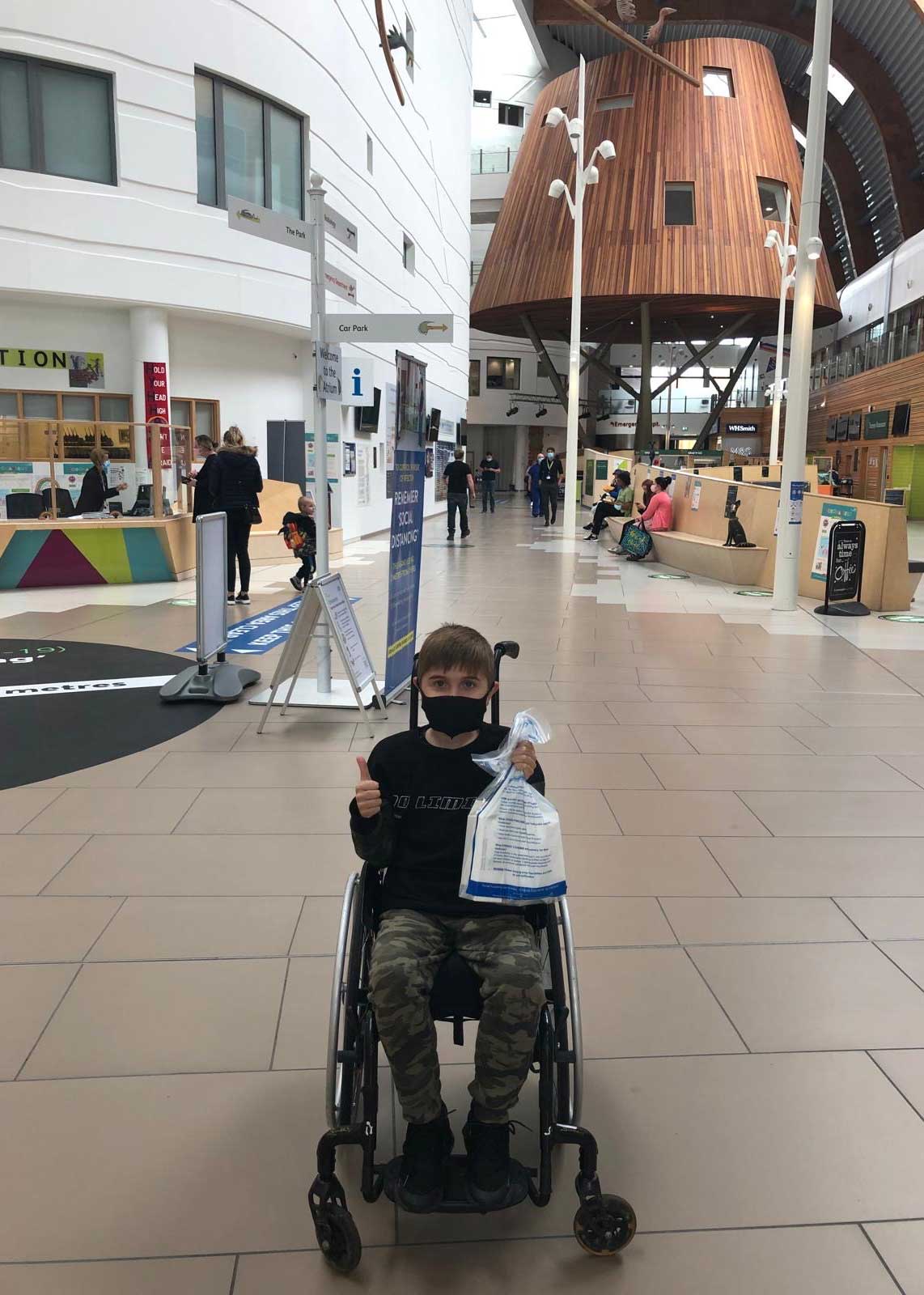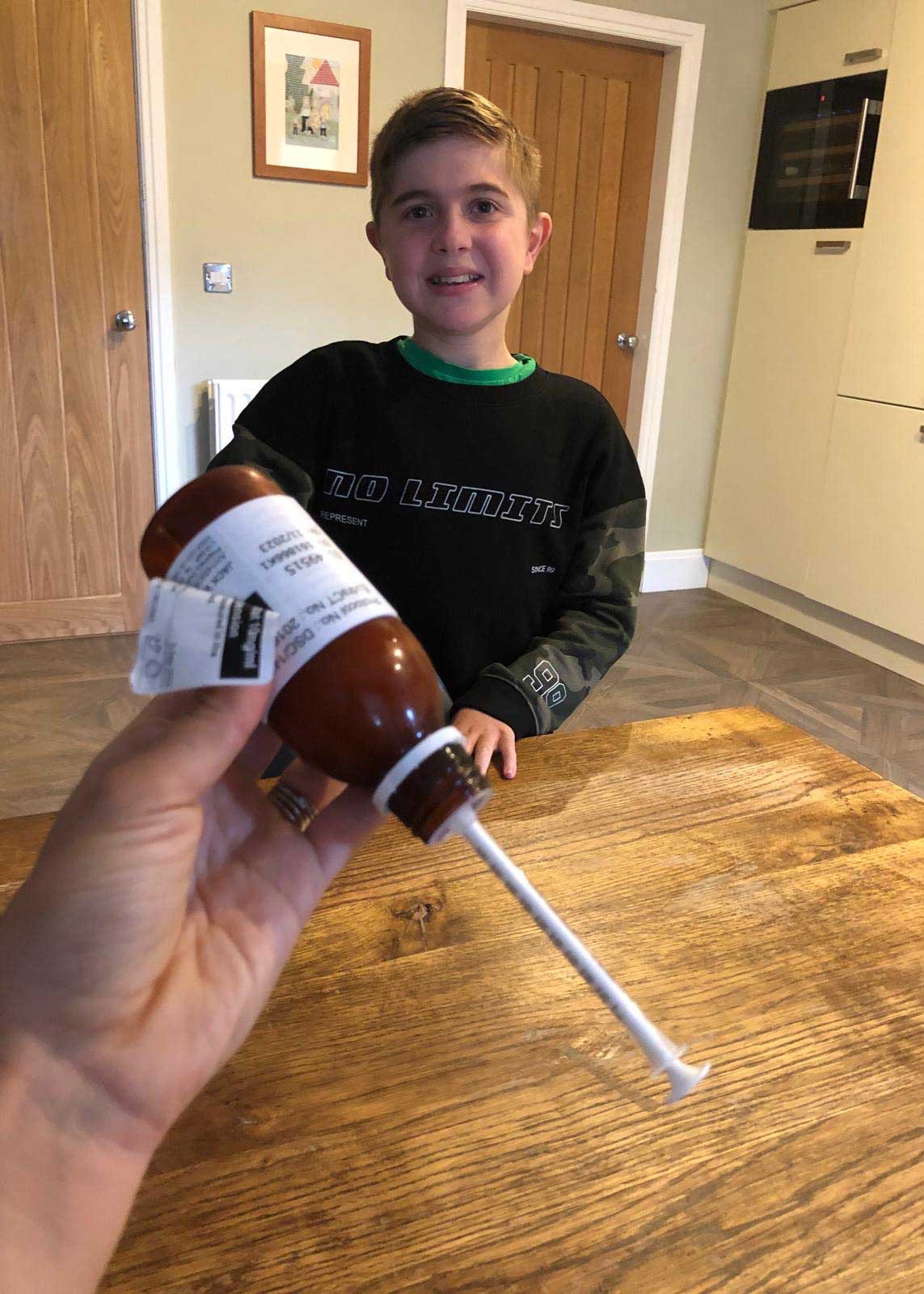My friends will get the chance that I got more than four years ago to try a treatment that is now proven to slow the progression of the disease
I am Jack Johnson, and I am 16 years old. I will be 17 in January. I was diagnosed with Duchenne Muscular Dystrophy when I was three years old.
Since my diagnosis, my friends and family have campaigned tirelessly to fund research into finding a treatment for Duchenne. I can never thank people enough for everything they have done to help me and the Duchenne community.
In my short life, I have already taken part in three tough clinical trials. The first two trials failed dramatically, which was heartbreaking for me and my family. Clinical trials are very hard to take part in. You have to give your blood, sweat and tears to take part.
What I want to tell you about in this message is about the clinical trial that I am on now for Givinostat. A drug that has been approved today and made available to everyone living with Duchenne.
The black and white results of the data show the drug is slowing down the progression of the disease, but I would like to add some colour to that data by sharing my story with you.
I started the treatment when I was 12 years old - an age at which boys with Duchenne typically can stop walking. I don’t remember much about the start of the clinical trial other than the drug tasted bitter and I went a bit picky with the foods I liked. I didn’t want prawn cocktail!
I did have a platelet count drop which meant we had to watch for bruising, which I never got. My bloods are now fine, and I am looking forward to a prawn cocktail at Christmas.
I never noticed any major improvements when I started taking the drug, but the remarkable thing was, at 12, I stabilised and seemed to stay the same for four years. I managed to continue walking until I was 16 years old.
At 16 I went through a difficult time at school that really impacted my mental health. During that time, I accidently flipped my wheelchair (which had no tippers) which led me to me breaking my arm and shoulder. My bones are weaker because I take steroids so they break more easily.
The impact of fractures meant I struggled to balance to walk and felt safer staying in my wheelchair. It wasn’t muscle weakness that took me off my feet but the emotional impact of Duchenne. I will always wonder if I didn’t have that accident would I still be walking? I picked myself up though and continued with my education. I passed my GCSEs and managed to get a place at college doing a BTEC Level 3 in Graphic design. Unlike my friends with Duchenne, I have never had to have a reduced timetable due to tiredness. I have stayed full time in high school and college.
I noticed I don’t get sick with bugs like my Duchenne friends and I have never been hospitalised with illness which is common for people with Duchenne. I do believe I have stayed well and had the stamina to do so well because I am taking Givinostat.
My greatest passion in life is wheelchair sports. I play power hockey and powerchair football. I do this on top of full-time college, I train twice a week and play on a weekend.
My wish is to stay on this drug so I can achieve my dreams of representing England in powersports and I want to go to university to study graphic design. I have even looked at doing an apprenticeship with the BBC.
Through playing powersports, I have made many friends with Duchenne. I have watched them deteriorate over the past four years while I stayed pretty much the same.
I am still able to transfer independently. I need a lot less help than my friends who are the same age as me or younger.
I have watched as my friends with Duchenne need help having drinks lifted and food cut up. I don’t have these problems. It breaks my heart to see them struggling.
My friends at powerhockey watch me independently transfer while they are hoisted, and it has felt unfair that they can’t have the same treatment as me so they too can achieve their dreams. At times I did feel judged by them because I was the boy that got the drug and they didn’t.
I'm glad givinostat is approved for ambulant and non-ambulant boys. I am glad that my friends will get the chance that I got more than four years ago to try a treatment that is now proven to slow the progression of the disease. Thank you to everyone that has supported me on my journey to find a treatment for Duchenne.
Jack 👉👈



